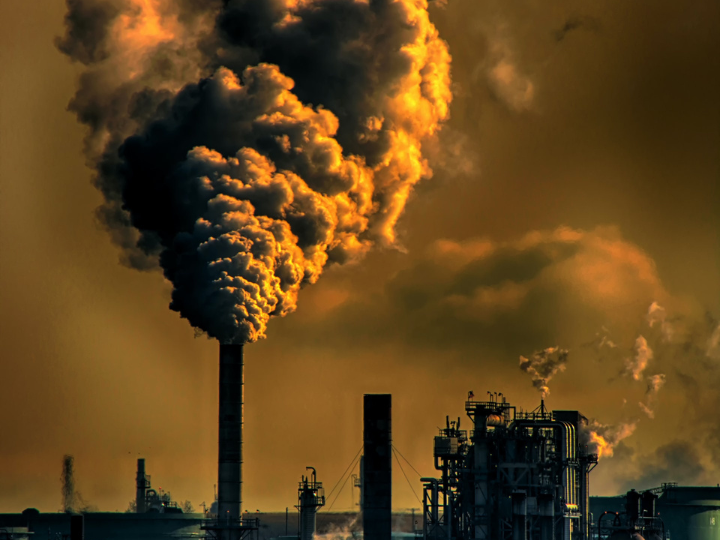by Elizabeth Claire Alberts*
Pollution is currently responsible for at least 9 million premature deaths a year worldwide, accounting for one in six deaths, according to a new report.
Published in Lancet Planetary Health, the report is an update to a 2017 finding that pollution contributed to the same number of deaths prior to 2019. The authors note that while there have been reductions in some pollution-related deaths since the last assessment, such as those associated with household pollution or water quality, a growing number of deaths are related to outdoor air pollution and toxic chemical pollution as society becomes increasingly industrialized. In fact, deaths related to industrialization and urbanization have risen by 7% since 2015 and 66% since 2000, the authors note.
“Not only are we seeing these alarming trends, but nobody’s really doing an awful lot about it yet,” Rachael Kupka, report co-author and executive director of the Global Alliance on Health and Pollution, told Mongabay. “It’s been five years since we raised the alarm about pollution being the largest environmental cause of death on the planet, and we’re just not seeing the response in the development agenda yet that we would like to see. There’s been just a drop in the bucket in terms of funding that’s flowing to the worst-affected countries to be able to deal with these problems.”
The majority of pollution-related deaths are due to air pollution, accounting for 6.5 million deaths each year, according to the report. Yet air pollution impacts the health of many more people than this, with the World Health Organization estimating that 99% of the global population breathes contaminated air that exceeds safe limits.
Lead poisoning and other kinds of chemical pollution may contribute to about 1.8 million deaths around the world, but the authors say this, too, is likely to be an underestimate.
“We just don’t have an estimate of the burden of disease from many, many other chemicals that we know cause human health impacts — asbestos, pesticides, mercury, cadmium, chromium, all endocrine disruptors — these are not included in this analysis,” Kupka said. “So this is why we say this is a really severe undercount.”
The authors also note that many manufactured chemicals in commercial use haven’t been “adequately tested for safety or toxicity,” which makes it nearly impossible to attribute disease and death to their exposure.
It’s estimated that there are about 350,000 different types of artificial chemicals currently in the global market, and production is expected to increase in the coming decades — yet very few of these chemicals have been properly evaluated.
Pollution can impact people in just about every place on Earth, but 92% of pollution-related deaths occur in low-income and middle-income countries, the report says.
“The health impacts of pollution remain enormous, and low- and middle-income countries bear the brunt of this burden,” said lead author Richard Fuller, co-chair of the Lancet Commission on pollution and health. “Despite its enormous health, social and economic impacts, pollution prevention is largely overlooked in the international development agenda.”
While governments, intergovernmental bodies, organizations and individuals acknowledge the dangerous impacts of pollution in our environment, the authors say that not enough has been done to deal with the issue. Moreover, national development agendas have recently been preoccupied with climate change and COVID-19. However, the authors argue that pollution, climate change and human health are intrinsically interlinked, and that preventing pollution can help mitigate climate change and aid human well-being.
“Pollution is still the largest existential threat to human and planetary health and jeopardizes the sustainability of modern societies,” said co-author Philip Landrigan, director of that Global Public Health Program and Global Pollution Observatory at Boston College. “Preventing pollution can also slow climate change — achieving a double benefit for planetary health — and our report calls for a massive, rapid transition away from all fossil fuels to clean, renewable energy.”
The theory of planetary boundaries suggests there are nine Earth processes responsible for regulating, stabilizing, and maintaining a global environment hospitable to human life, but that each has a limit beyond which it cannot withstand extreme environmental change and strain. The nine boundaries include climate change, biosphere integrity loss, ocean acidification, ozone depletion, atmospheric aerosol pollution, freshwater use, biogeochemical flows of nitrogen and phosphorus, land-system change, and release of novel chemicals. Pollution would influence just about every one of these boundaries, but the impacts are perhaps felt most strongly in terms of climate change, atmospheric aerosol pollution, and the release of novel entities into our environment.
The report authors put forward several recommendations to tackle pollution, including the establishment of a body similar to the Intergovernmental Panel on Climate Change (IPCC) that focuses on global pollution issues. They also call for better planning, monitoring and funding schemes to better deal with pollution.
Kupka said she believes the most positive development in terms of pollution prevention has been the “political will to tackle the issue.”
“We’ve seen time and time again that when that action is taken, you can really protect public health, you can reduce impacts on the environment, and you can reduce these knock-on effects for economic development, educational attainment and all sorts of other things,” she said.
*Staff Writer, Mongabay
**first published in: www.weforum.org




 By: N. Peter Kramer
By: N. Peter Kramer
